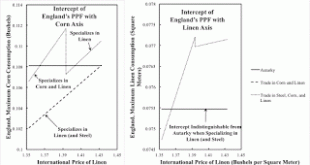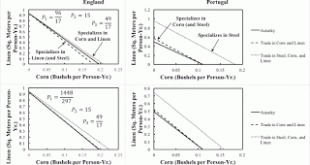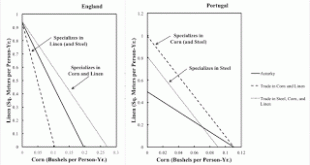Some articles: Josh Barro, in New York Magazine. Noah Smith, in Bloomberg. Linette Lopez, in Business Insider. Michael Strain, also in Bloomberg. I do not assert that all points in these articles are well-taken. I think of MMT as descriptive. It combines endogenous money, functional finance, and chartalism. Much of its empirical evidence consists of qualitative descriptions of how financial institutions and central banks operate. One can imagine a policy regime where unemployment and...
Read More »What Is Pure Capitalism?
1.0 Introduction This post is fairly stream of consciousness. It is a bit more about how many find me odd. I have previously mentioned, as an aside, Kozo Uno and his reading of Marx's Capital as a theory of pure capitalism. I like this idea, although it needs to be noted Marx had a lot to say in Volume I about concrete practices in his day and the historical development of capitalism. The theory and history are entwined. But Marx certainly presents the capitalist, not as a person, but as...
Read More »Linear Programming, M-C-M, and C-M
1.0 Introduction Consider typical Linear Programs (LPs) for formulating the theory of firm in classical and neoclassical economics. I claim that the classical theory can be formulated as M-C...P...C-M, and that the neoclassical theory of production is something like C...P...C-M. The notation is from Marx. For Marx, simple commodity circulation is represented as C-M-C. A commodity is sold for money, and then that money is used to buy another commodity. An owner of a use value trades it for...
Read More »Foreign Trade And Non-Uniform Rates Of Profits
This post raises a question. Supposedly, the classical concept of prices of production with non-uniform rates of profits can be recast as a theory of foreign trade. I do not see how wages can properly be treated in such recasting. D'Agata (2018) and Zambelli (2018) are two recent papers that argue prices of production can be formulated with non-uniform rates of profits. They argue that this introduces a certain indeterminateness into prices, as in some of my examples of foreign trade....
Read More »Robert Visits An American Grave: Frederick Douglass
Frederick Douglass was an escaped slave, a great abolitionist orator, and generally a great American. Not too long ago, I read one of his autobiographies. Of his speeches, I am most likely to recognize bits from his 1952 observations on independence day. (Eldridge Cleaver quotes it in Soul on Ice.) This part is fierce: What, to the American slave, is your 4th of July? I answer: a day that reveals to him, more than all other days in the year, the gross injustice and cruelty to which he...
Read More »Variation Of Gains From Trade With International Prices
Figure 1: Intercepts of Production Possibilities Frontiers for England1.0 Introduction In this example, gains and losses from trade vary with international prices. Given rates of profits are compatible with an interval of relative international prices for linen and corn, when trade exists only in consumer goods. I explore whether, when trade exists in capital and consumer goods, more than one pattern of specialization among countries is possible, depending on relative international...
Read More »Gain or Loss from Trade with Multiple Equilibria
Figure 1: Production Possibility Frontiers1.0 Introduction Suppose foreign trade is possible in consumption goods, but not in capital goods. In this example, whether or not England achieves gains from trade depends on relative international prices. If foreign trade were possible in both consumption and capital goods, both England and Portugal would obtain gains from trade. The numeric example in this post is a modification of one in a previous post. As I understand it, most students of...
Read More »Elsewhere
Matthew Klein writes, in Barron's, about "Tarrifs and the Minimum Wage Are More Alike Than You Think". I disagree with some of the stuff in the middle about efficiency and reject the dualistic notion that government intervention is a meaningful concept. But this article otherwise parallels some of my arguments here. Josh Mason has made available his piece in Jacobin about the state of economics after the global financial catastrophe. The Review of Political Economy has made available...
Read More »Gains And Losses From Foreign Trade: A Numeric Example
Figure 1: Production Possibility Frontiers1.0 Introduction This post presents a numeric example of foreign trade in a model of the production of commodities by means of commodities. This is a modification of the model here, which considers a flow-input, point output technology. As usual, I show neoclassical economics is mistaken. Frictions, increasing returns, information asymmetries, principal agent problems, and so on do not need to be introduced to explain why the outcomes of free...
Read More »Pattern Analysis Applied to Structural Economic Dynamics with a Choice of Technique: A Numerical Example
I have made a working paper with the above title available on SSRN. Abstract: This article illustrates the application of pattern analysis to structural economic dynamics with a choice of technique. A numerical example is presented in which technical progress is introduced. Examples of temporal paths through the parameter space illustrate variations of the wage frontier. A single technique is initially uniquely cost-minimizing for all feasible rates of profits. Eventually, the technique...
Read More » Robert Vienneau: Thoughts Economics
Robert Vienneau: Thoughts Economics




